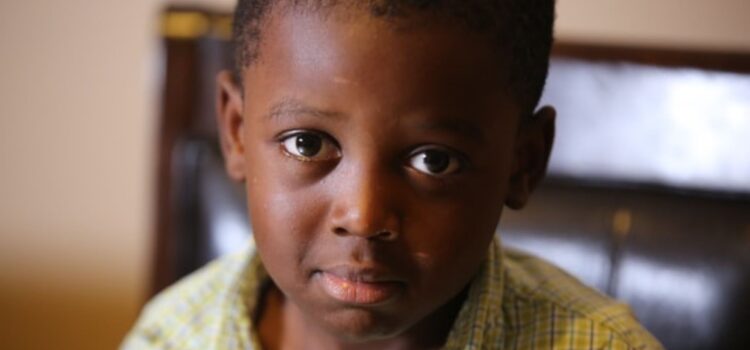

This article is an excerpt from the Shortform book guide to "Getting the Love You Want" by Harville Hendrix and Helen LaKelly Hunt. Shortform has the world's best summaries and analyses of books you should be reading.
Like this article? Sign up for a free trial here .
What are the effects of childhood trauma on your adult life? How does childhood trauma affect romantic relationships?
In Getting the Love You Want, therapists Harville Hendrix and Helen LaKelly Hunt suggest that your unconscious mind chooses a mate who will help you resolve the wounded parts of your childhood. When your partner fails to meet your unconscious expectations, your relationship falls apart.
Check out how your childhood affects your adult relationships below.
The Legacy of Childhood
When a relationship starts to falter, it’s easy to blame your partner. Often, you’re not even consciously aware of the specific hidden needs you expect them to fulfill. To understand the unconscious drives that you bring into a romantic relationship, it’s important to examine the effects of childhood trauma. Hendrix and Hunt propose that the process of mutual self-discovery will shine a light on your unmet childhood needs and will become the first step in transforming you and your partner from antagonists into allies on the road to rebuilding your relationship.
Imperfect Parents
Many people are survivors of traumatic childhoods, having suffered abuse, physical hardships, or the loss of parents or siblings. However, Hendrix and Hunt point out that the events that warped your childhood need not be dramatic or overt to have lasting effects. All childhoods are imperfect, because parents are human, with unmet needs and flaws of their own. Usually, when a parent says or does something that inadvertently hurts their child, the emotional wound will heal over time. But if the hurting is repeated and persistent, it leaves lasting effects of childhood trauma that are carried into adulthood.
While there are many ways parents can have a negative impact, Hendrix and Hunt focus on two broad categories of imperfect parenting:
- Parents who are intrusive and controlling raise children who learn to isolate themselves to preserve their sense of identity.
- Parents who are absent or neglectful raise children who learn to cling hard to their loved ones, desperate to be seen and acknowledged.
Hendrix and Hunt state that in seeking out romantic partners, your unconscious mind is searching for someone who closely resembles the traits of your parents. For example, a person whose father prioritized work over family may be drawn to someone who’s career-driven, with the unspoken agenda of getting their partner to make them their life’s focus, and not their job instead. In other words, your subconscious wants to recreate your childhood, with the intention that “this time, you’re going to get it right.”
The Cost of Socialization
Another emotional effect of childhood trauma is the cultural expectations we’re raised with. The authors explain that parents, teachers, and clergy impose the rules as to what we’re not allowed to do, think, or say, while also defining our place in society—for example, “boys don’t cry” and “girls should be mothers when they grow up.” Socialization teaches children to close off parts of themselves—to repress certain thoughts, feelings, and desires.
When we commit self-denial to fit into the strictures of family and culture, we create a lost self like a hole in the psyche. On some level, we may be aware that an essential part of ourselves is missing, and in relationships, we may be attracted to people who exhibit the traits that were repressed in our own lives. For example, someone who feels socially awkward may be attracted to a person who is outgoing. Hendrix and Hunt suggest that in addition to looking for a parental match, your unconscious is actively searching for a partner who will fill your missing pieces and make you feel complete.
The impact of culture on child development can’t be overstated. A study of teenagers from 19 countries found that their sense of fulfillment and self-esteem depends on how well they live up to their cultural values—not what they value themselves.
One factor not touched on by Hendrix and Hunt is the effect of social class on child development and emotional well-being. Many studies show that low socioeconomic status affects children’s mental and physical health, as well as increasing the risks of child abuse and neglect.
The Idealized Caregiver
Hendrix and Hunt state that a big effect of childhood trauma is the idealized caregiver image. During childhood, your subconscious creates a blended image of all the people responsible for your care—parents, grandparents, foster parents, older siblings, and so on. The authors call this imaginary gestalt “the Imago.” Your own Imago is an idealized image that closely resembles the people who raised you, with all their positive and negative traits, while also making up for your repressed desires and feelings.
Hendrix and Hunt suggest that whether we know it or not, this parental image is the template we use when evaluating potential romantic partners—and the more closely a potential mate matches your unconscious parental image, the more you feel attracted to them. While we may think we know why we find certain people attractive, this process is entirely unconscious and can take place very quickly. If two people match each other’s parental image, the mutual attraction can be irresistible. In the case of close “perfect partner” matches, love at first sight can be very real.

———End of Preview———
Like what you just read? Read the rest of the world's best book summary and analysis of Harville Hendrix and Helen LaKelly Hunt's "Getting the Love You Want" at Shortform .
Here's what you'll find in our full Getting the Love You Want summary :
- Why rifts often open between your romantic partner and yourself
- How your childhood defines your future relationships
- How a struggling couple can learn to talk to each other, heal, and grow






